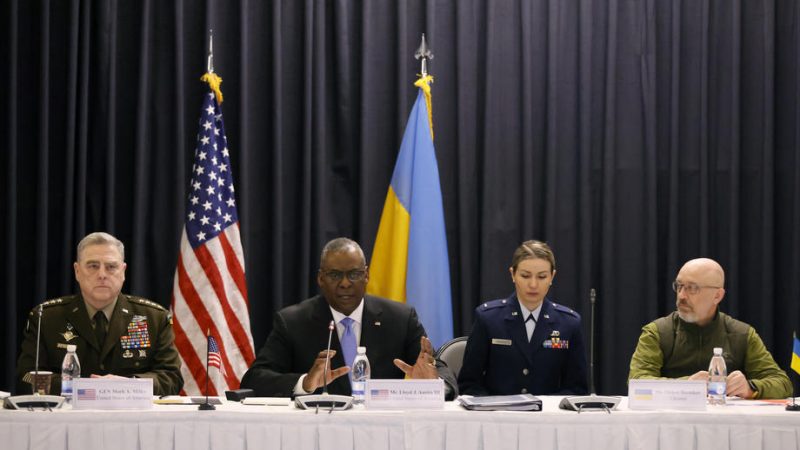
“Putin only understands the language of strength” has become the unanimous position among elite decision-makers within the North Atlantic Treaty Organization (NATO). Germany, as a last holdout, has now embraced the arming of Ukraine in furtherance of what the U.S. State Department is calling an effort “in support of Ukraine in response to Russia’s premeditated, unprovoked and unjustified war against Ukraine.”
To coordinate this initiative, the U.S., vowing to “move heaven and earth to help Ukraine win the fight against Russia’s unprovoked aggression,” convened a working group of defense ministers from some 40 nations at its military base in Ramstein, Germany, to systematically bolster the defense capabilities of Ukraine.
U.S. interest in the militarization of Ukraine, however, well pre-dates the February 2022 Russian invasion.
In 2008, President George W. Bush pushed for the inclusion of Ukraine in NATO’s Membership Action Program over vehement Russian opposition. In the years leading up to the Euromaidan uprisings, the U.S. “indirectly and discretely” supported movements opposing the then pro-Russian Ukrainian government.
Following the 2014-2015 Ukraine crisis, the floodgates for defense support opened wide. Since 2014, the U.S. has provided more than $6.4 billion in security assistance, including Stinger anti-aircraft systems, Javelin anti-armor systems, Switchblade Tactical Unmanned Aerial Systems, Howitzers, tactical vehicles, helicopters, armored personnel carriers, extensive munitions, tactical equipment, and more.
This military support has been coupled with increased incorporation of Ukraine in NATO operations. Ukraine has been invited to participate in multiple NATO exercises in recent years, including the Rapid Trident 21 Ukrainian-led, U.S.-facilitated military training exercise along with NATO partner nations in September 2021.

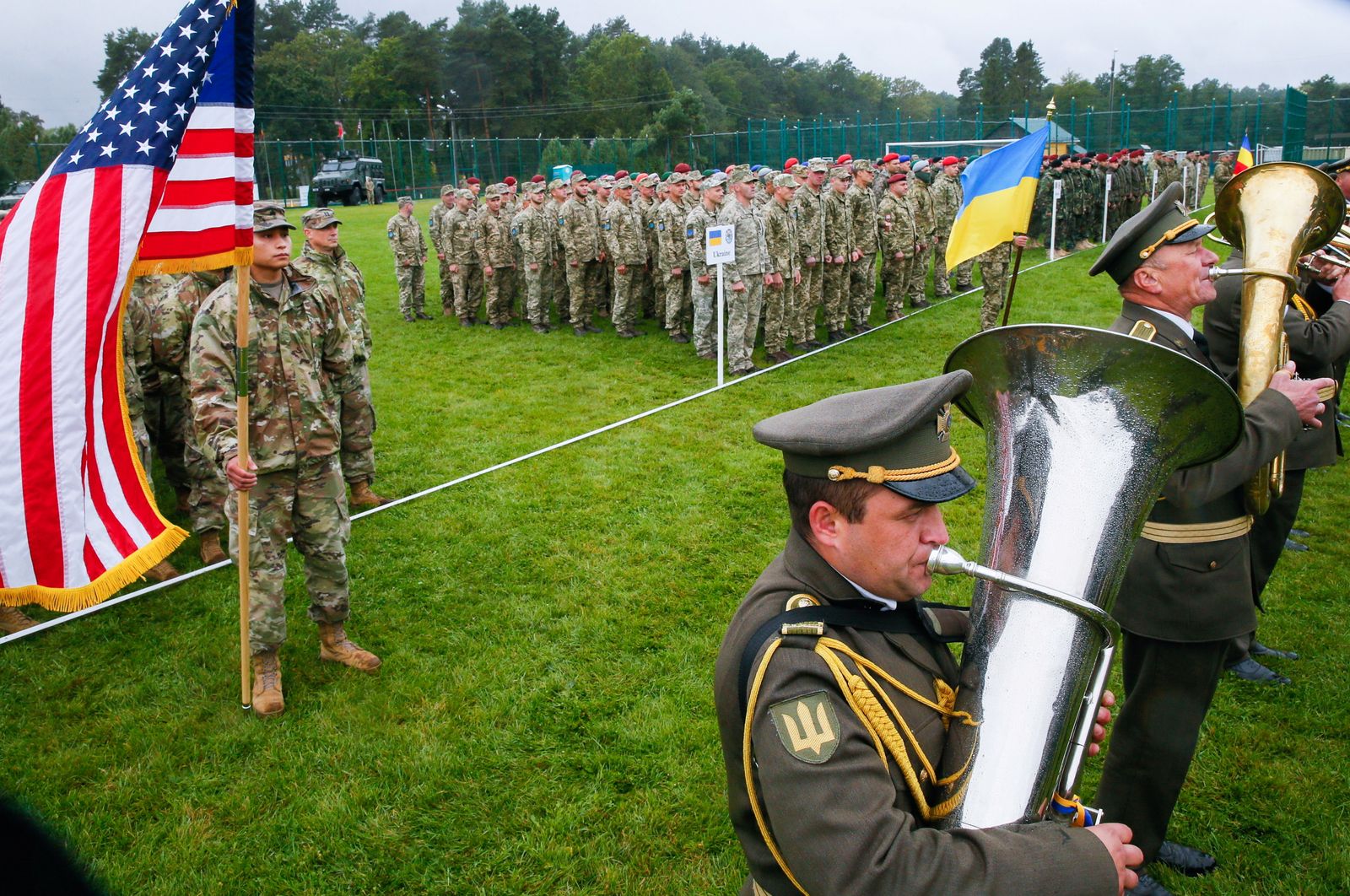
Since the outbreak of the war, the U.S. has been showering Ukraine with more than $4 billion in pledged security support within the first month of the conflict alone. Most recently, Congress passed and President Biden signed a $40 billion aid package for Ukraine much of which goes toward military assistance through September: that’s more than $100 million per day.
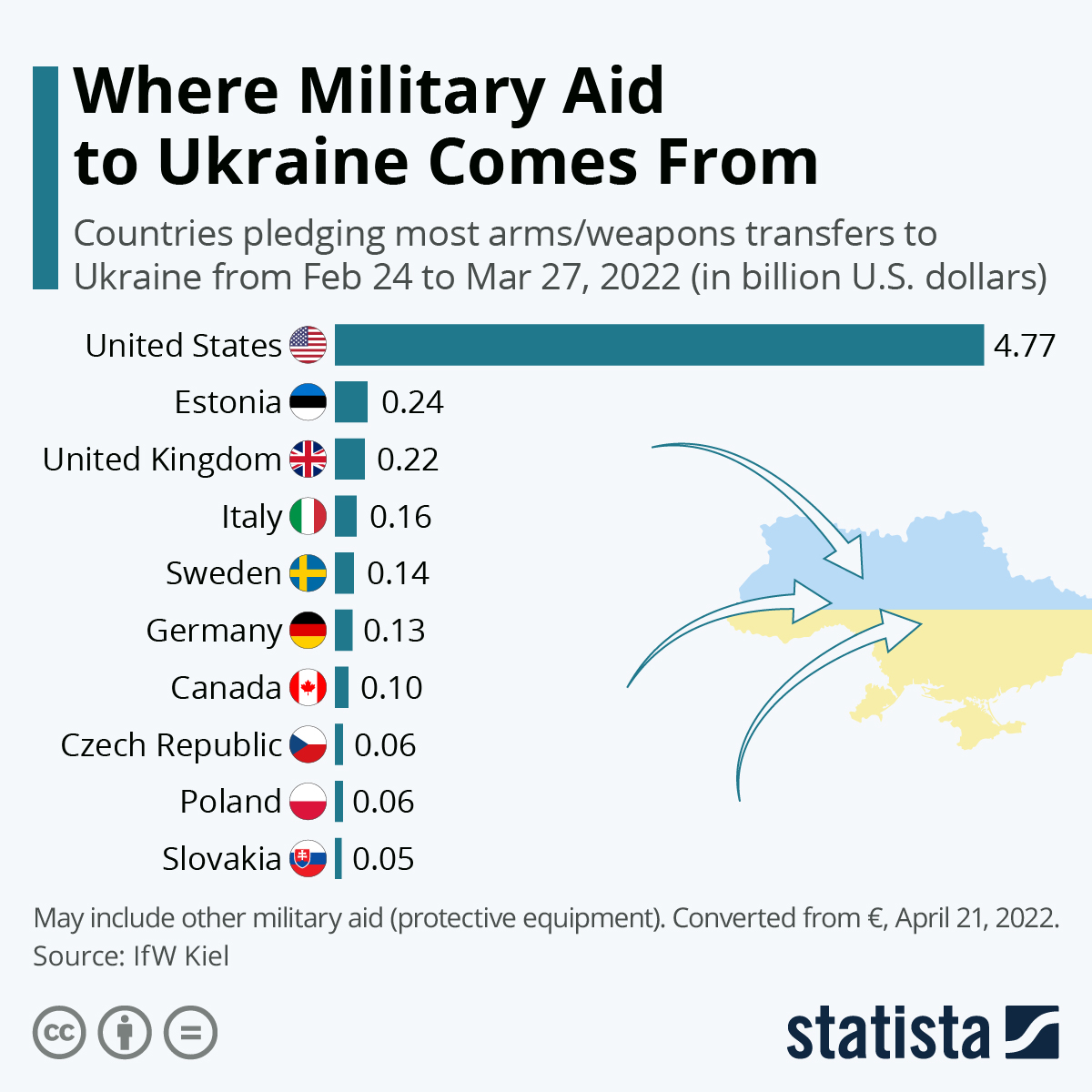
This strategy of heavily militarizing Ukraine raises several critical questions: What is the end objective and can it be achieved at acceptable cost?
With regard to the first, the narrative generally presented to the public is that military support is intended to help the people of Ukraine defend their nation in a fight for freedom.
If this is the objective, then mere cursory contemplation of the second question reveals a distinct ambiguity surrounding the militarization approach. Extending the war indefinitely—through continuous armament of Ukraine over encouraging its earliest possible cessation through negotiation—will lead all but inevitably to the ever-greater destruction of Ukraine.
Russian acceptance of a Ukrainian military victory in the traditional sense before the utter ruination of the country is little more than fantastical.
It is apparent, though, that the long-standing U.S. interest in the militarization of Ukraine has less to do with the Ukrainian nation and people and more with debilitating Russia.
Secretary of Defense Lloyd Austin plainly provided in a recent statement that the U.S. would like “to see Russia weakened…” To this end, a grueling war of attrition in Ukraine, fueled by a steady supply of Western arms, provides a strategic mechanism for slowly bleeding Russia out.
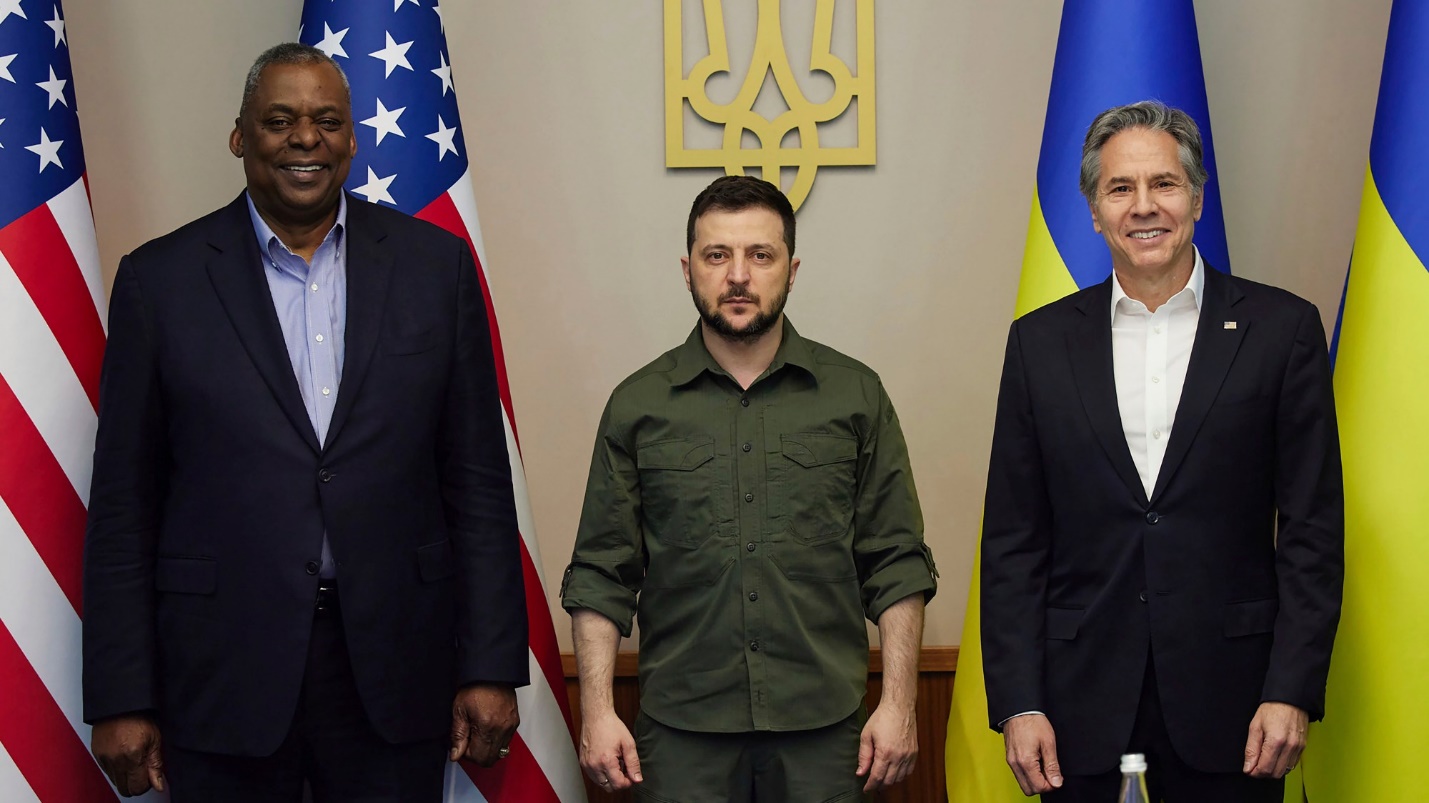
Be this the actual goal, then here too the second question should raise serious concerns. One obvious cost of achieving this objective is acceptance of and active contribution to the annihilation of Ukraine, rendering any overt professions of solidarity disingenuous.
Another cost is the creation of potentially catastrophic escalation risk. The extensive involvement of the U.S. and its Western allies in the provision of arms, intelligence and training to Ukraine make the full-blown outbreak of a World War III perilously acute. No decisive winner would emerge from such a war between adversaries presiding over 90% of the world’s nuclear arms reserves (i.e., the U.S. and Russia) and advanced conventional weaponry. Instead, mass destruction would ensue—including, in the worst case, obliteration of much of the planet, should the conflict escalate to the strategic nuclear level.
Dubious Rationale
A simple cost-benefit analysis should indicate to rational minds that this militarized approach to the Ukraine situation cannot possibly bring to fruition amorphous illusions of a Western victory without incursion of overwhelmingly high costs. So why maintain this suspect direction?
The official, publicly disseminated rationale is essentially that no other option exists—that Putin’s imperial ambitions to reconstitute the former Soviet Union in dictatorial and aggressive fashion can only be countered by force; that the implications of this conflict transcend the Ukrainian borders, giving rise to a new ideological clash between “democracy and autocracy, between liberty and repression”; and that the very future of Western values may hang in the balance.
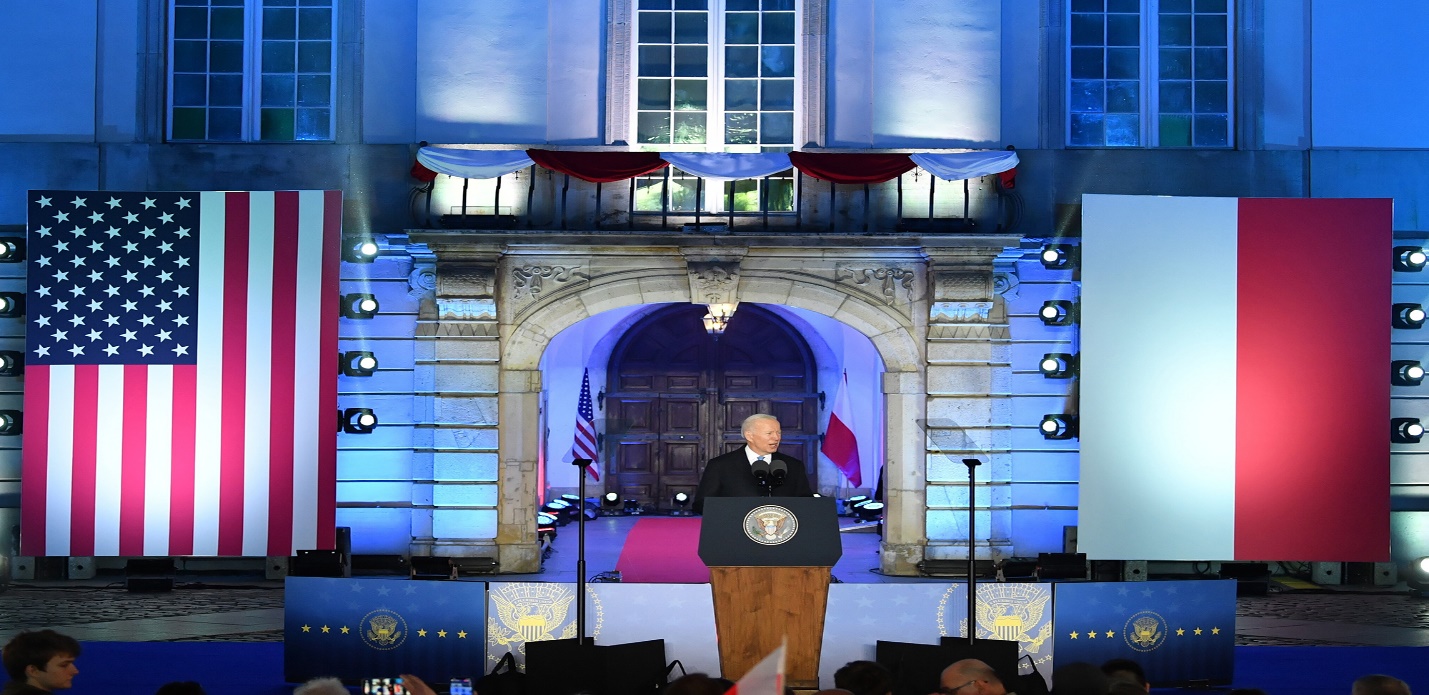
Closer inspection reveals this narrative to be dubious, if not tending toward propagandistic. A long history of NATO expansionism and direct U.S. interference in Ukraine, despite clearly articulated Russian security concerns, serves as a convincing alternative explanation for Russia’s unjustifiable, but understandable, actions.
While the Cuban missile crisis made clear that U.S. security concerns surrounding Russian military advances in sovereign states near American borders are to be respected, Western leaders have consistently appeared unwilling to return the favor and recognize comparable Russian concerns. Upon drawing attention to this obvious insight, Pope Francis drew high-level criticism for, inter alia, veering toward “conspiracy theor[ies].”
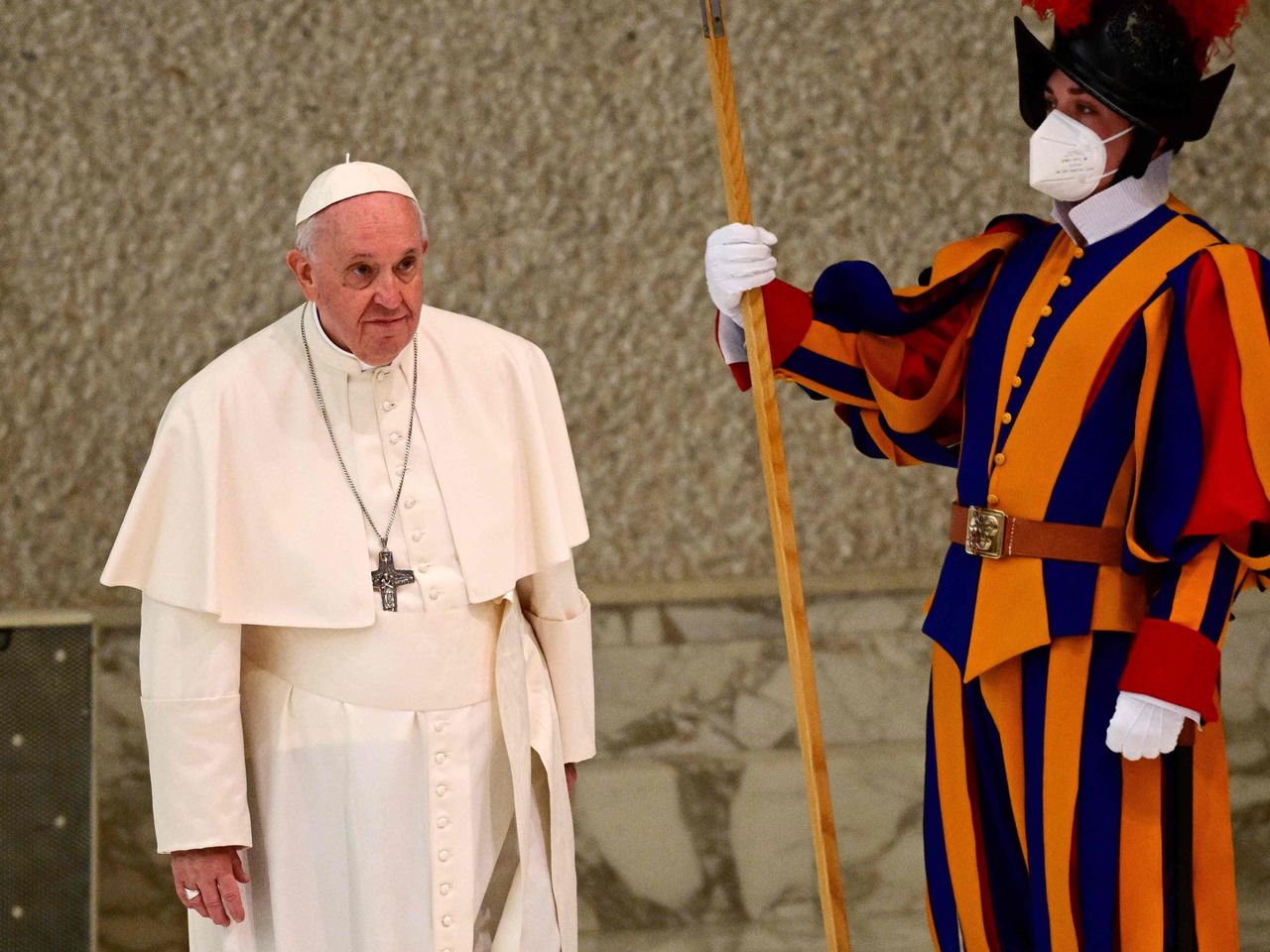
A clear alternative to “fighting Russia to the last Ukrainian,” as former U.S. Assistant Secretary of Defense Chas Freeman, Jr., put it, is to genuinely seek a diplomatic solution that would end the war and save Ukrainian lives—not prolong it and further sacrifice them.
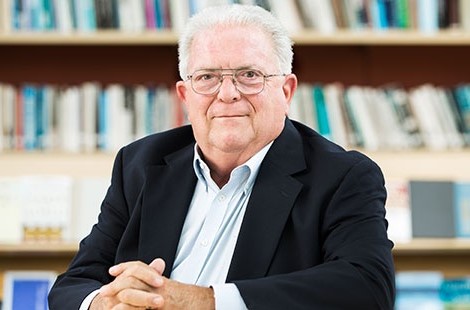
Assuming Russia’s motives really do derive from concerns over Ukraine falling under a U.S.-led, hostile military alliance, then Ukrainian acceptance of a neutral status—akin to Austria or Mexico—might serve as the basis for a peace deal to end Russian hostilities.
Ukrainian President Volodymyr Zelensky has previously indicated willingness to discuss neutrality in exchange for security guarantees. Pursuit of this route has, however, been thwarted by the West’s persistent arms transfers. Whether Russia would at this point accept a negotiated settlement is uncertain. The possibility should nonetheless be seriously pursued as a first option, favorable to the destructive and dangerous militarization approach.
Unabashed Hypocrisy
In addition to the West’s selective disregard of much of the pre-history leading up to the present war, its sanctimonious invocation of “values” is also shamelessly hypocritical.
In the first instance, it should be duly noted that the U.S., with the Bush doctrine of preemption, was the architect of the notion and practice of “preemptive war”—little more than a sanitized name for the classic war of aggression, identified as the “supreme international crime” during the Nuremberg Trials following World War II. The archetypal example of such an aggressive war in recent times was the U.S. invasion of Iraq in 2003, with its verifiably false pretext, ample war crimes and atrocities and lasting deleterious consequences.
For Europe’s part, it largely refrained from denouncing U.S. aggression, let alone imposing sanctions, urging criminal investigation, and hanging Iraqi flags from official buildings. Instead, it sat by while continuing to support the broader network of U.S. “counter-terror” operations born of the infamous Bush doctrine. For U.S. officials and their European colleagues to now cite international law and call for prosecution of Russians before international courts is plainly an instance of unabashed hypocrisy.
It does not end there though. Inconvenient truths undermine self-righteous Western appeals to freedom and democracy as well. Impassioned defenses of the freedom of states to choose alliance affiliations in the case of Ukraine’s desired NATO accession are indefensibly absent in other contexts. For instance, the U.S. recently responded threateningly that it would “respond accordingly” should the Solomon Islands make use of their right to freedom of alliance affiliation to enter into security arrangements with China.
Furthermore, a severely checkered past undermines U.S. claims of leading Western allies in the championing of democracy. The Center for American Progress reported that, while the U.S. has loudly touted its pro-democracy positions around the world, its policies in its own hemisphere have “eroded” its leadership in this regard.
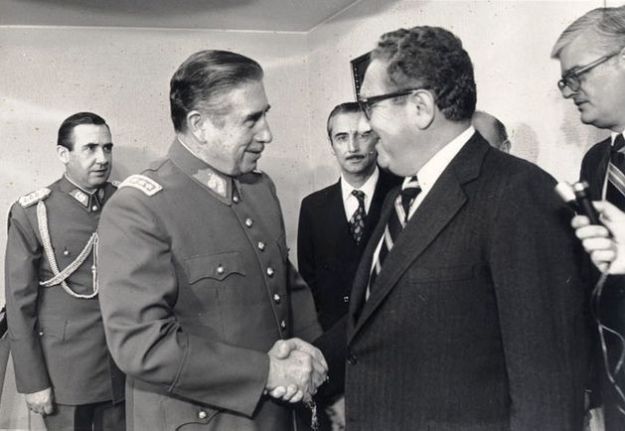
These policies include the suppression of democracy in favor of supporting brutal dictatorships that goes back to the 1954 ouster of the democratically elected government in Guatemala, followed by complicity in coup d’états in Paraguay, Brazil, Bolivia, Chile, Argentina, Nicaragua, and more, leading to egregious human rights violations. This ignominious track record continues to the present with, inter alia, internationally condemned economic strangulation of Cuba and a range of tactics to undermine the democratically elected government in Venezuela.
And this is just in Latin and South America. The U.S. has a similarly unimpressive record around many other parts of the globe, while Europe and Western allies continue to go along with this agenda and turn a blind eye.
Net Assessment
The war in Ukraine is undeniably terrible and is causing great suffering for the Ukrainian people. It is not, however, the epicenter of a new “clash” between values of freedom versus suppression or good versus evil, as President Biden and his Western colleagues disseminate to the public. It is a garden variety war over geopolitical interests. The U.S., through NATO, seeks expansion of its influence and a corresponding diminution of Russian military and economic strength (while, in the process, benefiting its arms industry and creating enhanced markets for its gas producers). Russia seeks to counteract this and loosen the U.S. grip on Europe.
The approach of militarizing Ukraine is strategically ill-conceived, dangerous and inhumane. A genuine and concerted effort to bring about a diplomatic resolution to hostilities and pave the way for a broader plan to cooperatively reduce tensions with Russia is what is so desperately required now. Such a course would best serve Ukraine, the West and, indeed, all humanity.

CovertAction Magazine is made possible by subscriptions, orders and donations from readers like you.
Blow the Whistle on U.S. Imperialism
Click the whistle and donate
When you donate to CovertAction Magazine, you are supporting investigative journalism. Your contributions go directly to supporting the development, production, editing, and dissemination of the Magazine.
CovertAction Magazine does not receive corporate or government sponsorship. Yet, we hold a steadfast commitment to providing compensation for writers, editorial and technical support. Your support helps facilitate this compensation as well as increase the caliber of this work.
Please make a donation by clicking on the donate logo above and enter the amount and your credit or debit card information.
CovertAction Institute, Inc. (CAI) is a 501(c)(3) non-profit organization and your gift is tax-deductible for federal income purposes. CAI’s tax-exempt ID number is 87-2461683.
We sincerely thank you for your support.
Disclaimer: The contents of this article are the sole responsibility of the author(s). CovertAction Institute, Inc. (CAI), including its Board of Directors (BD), Editorial Board (EB), Advisory Board (AB), staff, volunteers and its projects (including CovertAction Magazine) are not responsible for any inaccurate or incorrect statement in this article. This article also does not necessarily represent the views the BD, the EB, the AB, staff, volunteers, or any members of its projects.
Differing viewpoints: CAM publishes articles with differing viewpoints in an effort to nurture vibrant debate and thoughtful critical analysis. Feel free to comment on the articles in the comment section and/or send your letters to the Editors, which we will publish in the Letters column.
Copyrighted Material: This web site may contain copyrighted material the use of which has not always been specifically authorized by the copyright owner. As a not-for-profit charitable organization incorporated in the State of New York, we are making such material available in an effort to advance the understanding of humanity’s problems and hopefully to help find solutions for those problems. We believe this constitutes a ‘fair use’ of any such copyrighted material as provided for in section 107 of the US Copyright Law. You can read more about ‘fair use’ and US Copyright Law at the Legal Information Institute of Cornell Law School.
Republishing: CovertAction Magazine (CAM) grants permission to cross-post CAM articles on not-for-profit community internet sites as long as the source is acknowledged together with a hyperlink to the original CovertAction Magazine article. Also, kindly let us know at info@CovertActionMagazine.com. For publication of CAM articles in print or other forms including commercial internet sites, contact: info@CovertActionMagazine.com.
By using this site, you agree to these terms above.
About the Author

Ryan Swan is a doctoral researcher at the Bonn International Centre for Conflict Studies in Germany.
He holds a J.D. from the UCLA School of Law and a Master’s in international relations and politics from Trinity Hall, Cambridge.
Ryan can be reached at swan2018@lawnet.ucla.edu.


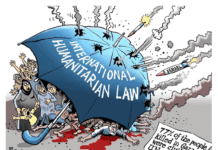

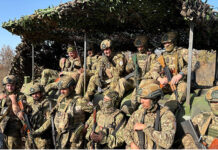
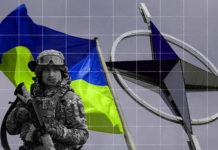

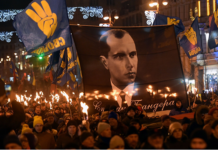
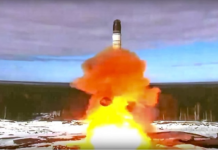


[…] U.S. interest in the militarization of Ukraine, however, well pre-dates the February 2022 Russian invasion. Following the 2014-2015 Ukraine crisis, the floodgates for defense support opened wide. Since 2014, the U.S. has provided more than $6.4 billion in security assistance, including Stinger anti-aircraft systems, Javelin anti-armor systems, Switchblade Tactical Unmanned Aerial Systems, Howitzers, tactical vehicles, helicopters, armored personnel carriers, extensive munitions, tactical equipment, and more. This military support has been coupled with increased incorporation of Ukraine in NATO operations. Ukraine has been invited to participate in multiple NATO exercises in recent years, including the Rapid Trident 21 Ukrainian-led, U.S.-facilitated military training exercise along with NATO partner nations in September 2021. https://covertactionmagazine.com/2022/05/24/u-s-increases-aid-to-over-100-million-per-day-for-ukrain… […]
[…] U.S. recently transferred another $3.3 billion in lethal aid to Ukraine and now spends more than $200 million a day for the Ukraine war, countless Americans, including a quarter of students living on the street […]
[…] recently transferred another $3.3 billion in lethal aid to Ukraine and now spends more than $200 million a day for the Ukraine war, countless Americans, including a quarter of students living on […]
[…] due, in part, to the pandemic. For Americans, it now means assistance in an amount exceeding $100 million a day for the war in Ukraine, something an indebted nation cannot afford without effectively […]
“And this is just in Latin and South America. The U.S. has a similarly unimpressive record around many other parts of the globe, while Europe and Western allies continue to go along with this agenda and turn a blind eye.”
To say that the US has an “unimpressive record” may be irony on your part, but it reads as a total misrepresentation of reality. The US does not have an “unimpressive record” when you look at the stark reality, which is that the US has never represented a force for the furtherance of peace, security, and democracy. The US and its allies such as France, the UK, and Germany, as you rightly point out, is dedicated to one thing only: making the world safe for Anglo-American big capital and ensuring that no other power emerges to rival its planetary dominance. Until now their record is quite impressive.
That the public in the US and its allied nations can still swallow the lies about protecting the world from autocracy can only be explained by a combination of bad faith, self-interest, and a refusal to look beyond the admittedly ubiquitous propaganda. But those excuses will not suffice any longer.
For those who want to begin reading the real history of US interventions abroad since WWII, _Killing Hope_ by William Blum is now available on the Archive. You have one less excuse: https://archive.org/details/pdfy-q0ULBH2DJICRS3Vg
You said it all! And I highly recommend Killing Hope. If it seems too much to tackle, just read the chapters on Guatemala and Afghanistan; they will tell you everything you need to know about the United States.
[…] U.S. Increases Aid to Over $100 Million per Day for Ukraine War: A Critique of the West’s Militari… […]
Swan’s analysis is incisively accurate and condemnatory of all the establishment propaganda with which we are continuously swamped. It is heartening to see that at least some well-placed international relations academics can tell the truth. We must continue to agitate and press for meaningful peace negotiations.
I understand very well what Ryan Swan is saying, but I ask him: ‘what else can politicians do with the war material their country produces? bombs, rockets, torpedoes, grenades, landmines are produced for killing or maiming people and for destroying buildings unless they organize wars Weapons for PEACE don’t exist. Why are military airplanes called air fighters? why are military boats called warships?
To expect politicians to act differently touches the realm of science-fiction.. Only the styles changes between Western and Eastern politicians, by the essence of what they do is the same. Politicians are not magicians. They cannot create and maintain Peace, whilst their duty is to ensure the War Industry does not collapse
An oxymoron. Same as if you expect politicians to promote the manufacturing and sale of music instruments and ban Music at the same time.
Alberto
[…] https://covertactionmagazine.com/2022/05/24/u-s-increases-aid-to-over-100-million-per-day-for-ukrain… […]
Germany finally confesses its support for the Nazis.